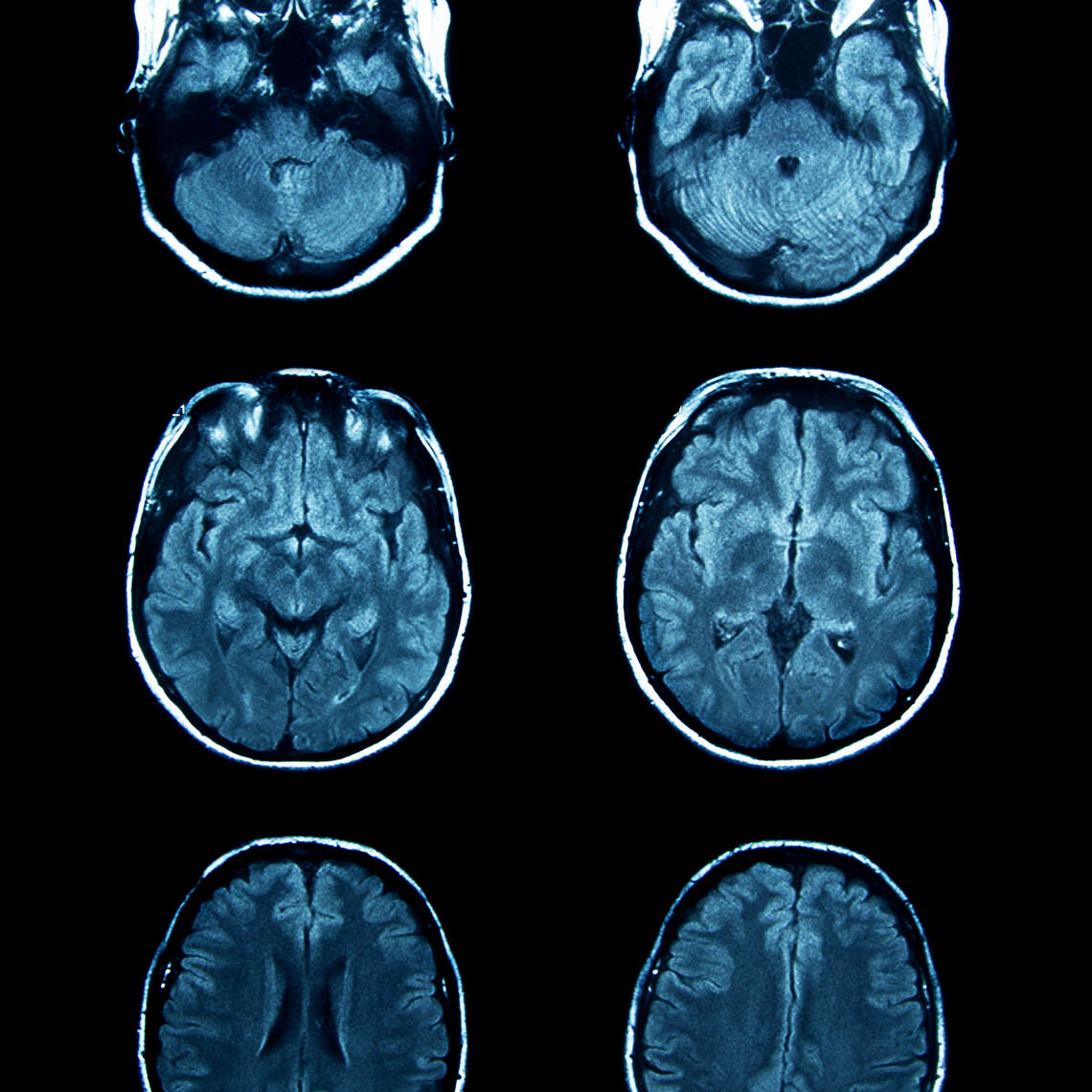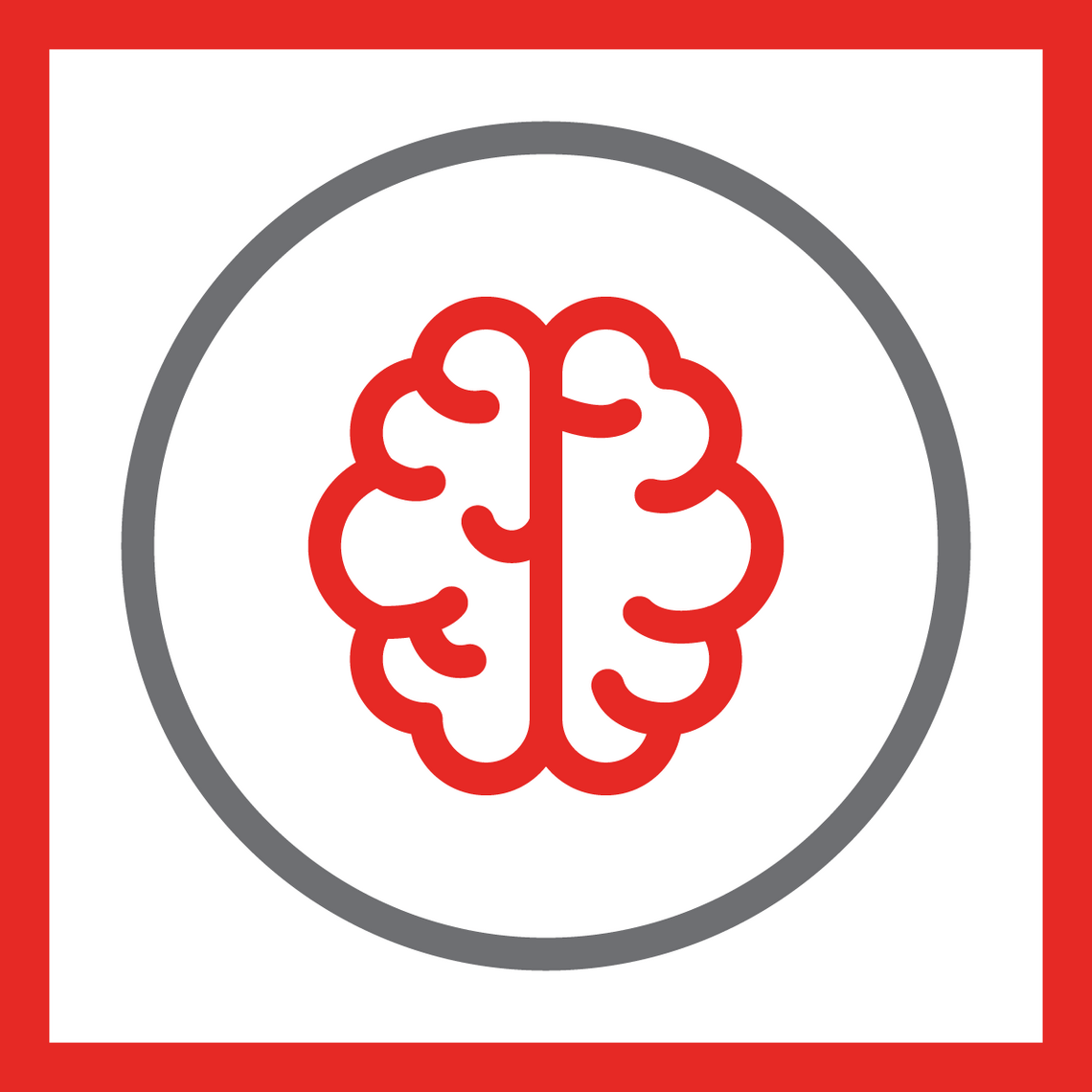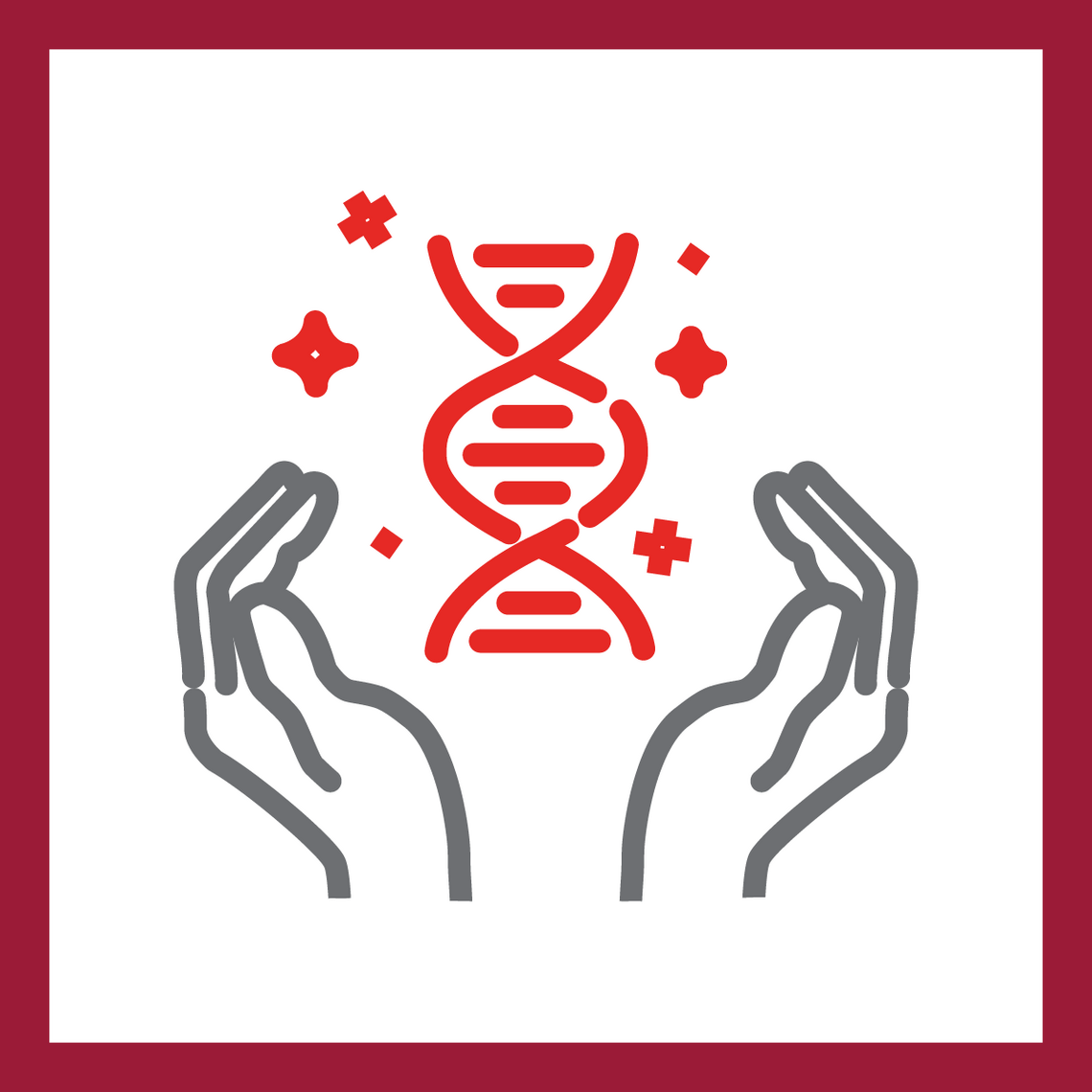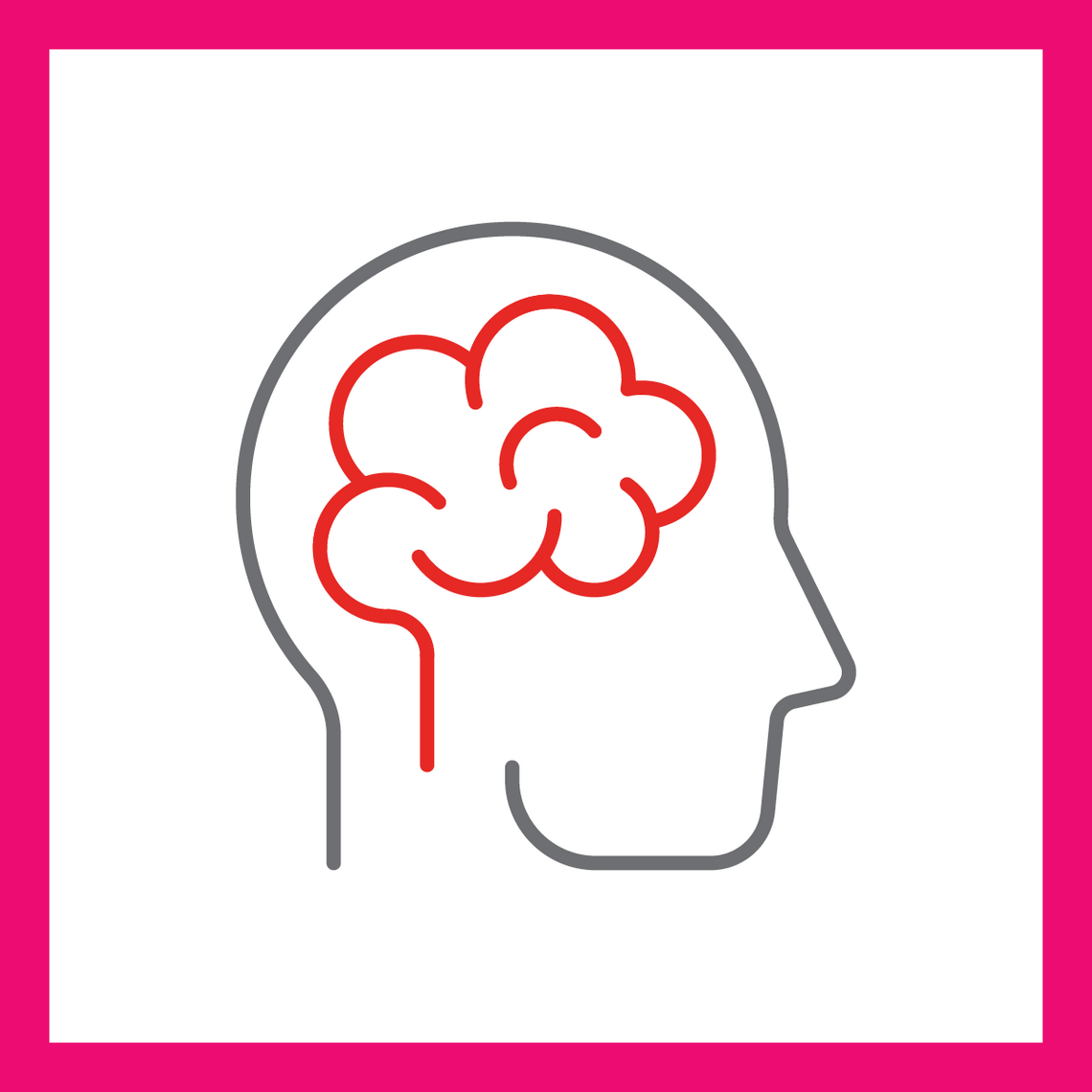20 years of impact and innovation
Lived Experience with Depression
Lived Experience with Spinal Cord Injury
Lived Experience with Stroke

2004
Beginnings: The Hotchkiss Brain Institute is formed by a transformational gift from the Hotchkiss Family Foundation. Harley and Rebecca Hotchkiss are pictured with Dr. Sam Weiss, the first director of the HBI.
The founding of the HBI is a pivotal moment for the Cumming School of Medicine and University of Calgary, setting the wheels in motion for impactful growth in brain and mental health research.
2005
Cannabinoids: CB2 receptor discovered in the brain. This could allow a reduction in the side effects from treatments for cancer. This could also allow the development of new treatments for chronic pain, epilepsy and other brain diseases while avoiding the mind-altering effects associated with cannabinoids and the CB1 receptors.


2006
Pain relief: Dr. Zamponi and his team make progress in understanding how pain signals and our sensitivity to morphine can be altered within the nervous system. This discovery could specifically have impacts which can help migraine sufferers.
2008
Bright futures: BSc Neuro program launches at the University of Calgary. This program will support the neuroscience education of individuals, creating global opportunities to work in areas such as biotechnology, biomedical research, pharmaceuticals, public health services, and more. A degree in neuroscience can also be used as a stepping-stone to graduate studies or another professional degree such as medicine or veterinary medicine.
Robotics: NeuroArm brings neurosurgery to new heights. A team of Calgary surgeons has successfully used a robot to remove a tumour from a young woman's brain. The surgical robotic system, called NeuroArm, helped surgeons remove the tumour from 21-year-old Paige Nickason. The machine is being dubbed the world's first MRI-compatible robot able to perform both surgery and biopsies in a less invasive way for patients. Read more.


2009
Philanthropy: Harley Hotchkiss and his wife Rebecca, continue their support for the HBI, committing $39M towards a major endowment fund.
The endowment will be used to support the ongoing neurological and mental health research and education initiatives of the Hotchkiss Brain Institute (HBI), including the recruitment and retention of top researchers and the development of leading-edge biomedical technology and facilities.
2010
Past and present: Mackie Family History of Neuroscience Collection. This collection complements education programs in neuroscience, history of medicine, and related disciplines, and strongly supports the research enterprise at the Hotchkiss Brain Institute, which is recognized as an international centre for neuroscience research. View the collection here.
KINARM launches: HBI member Dr. Dukelow helps develop a robotic stroke assessment and therapy delivery tool, the KINARM, enabling improved rehabilitation outcomes after stroke and brain injury. Dr. Dukelow uses the robotics system to objectively measure and quantify the effects of a stroke on sensory and motor skills. Stroke deficits can affect how a person sees, moves, senses, thinks, and processes language, and are usually measured in a subjective way through observing the patient performing different tasks. Read more.


2011
International connections: The Rebecca Hotchkiss International Scholar Exchange (RHISE) begins hosting visiting scholars and supporting learning at other world-renowned institutions.
The unique learning opportunity of this program allows HBI members and their trainees to work with the most outstanding colleagues in their field, regardless of their location. The value of these enriched educational opportunities is immeasurable.
2012
Mental health: opening of the Mathison Centre for Mental Health Research & Education. The centre's goals are to find innovative treatments and provide early intervention for mental illness, supporting families in Calgary, the province and around the world. Read more.
REALISE launches: new program helps trainees with opportunities for enhanced training and skills development. In addition to supporting education in brain and mental health research, REALISE helps trainees develop the tools necessary to become the next generation of community, business, and academic leaders. Learn more.


2013
Glioblastoma: Dr. Cairncross is hopeful the groundbreaking collaborative research—which includes cancer biologists, neurologists and specialists—will produce new drugs for cancer treatment that are ready for clinical trials in two to four years. Read more.
Brain injury: research team discovers how better identification, prevention, and treatment for concussions in sport. Dr. Emery and Dr. Meeuwisse, along with their colleagues in the Faculties of Kinesiology and Medicine, were awarded a $1.5 million Canadian Institutes of Health Research (CIHR) grant to follow young hockey players to find out the best ways to prevent, diagnose, and rehabilitate following concussion. Read more.
2014
Research space: construction begins on new Healthy Aging Laboratories to support collaborative research in the areas of stroke, dementia and movement disorders.
Researchers in the Healthy Brain Aging theme are working to better understand the interplay between aging and the increased risk of dysfunction in the nervous and vascular systems. Research teams include those conducting work in dementia and cognitive disorders, movement disorders, and stroke.


2015
Innovation: building an institute-wide neurotechnologies platform in order to provide researchers across all areas of brain and mental health with the most advanced equipment available. These include NeuroImaging, NeuroStimulation and NeuroInformatics.
As of 2024, HBI is home to nine neurotechnology cores, including the most recent additions of the Computational Neuroscience Core, and the Real World Evidence Platform. More information on the Neurotechnology Cores can be found here.
2016
Neurotech success: new chip records brain cell activity at higher resolution, leading to a better understanding of how the brain functions.
Conventional methods have allowed scientists to record the activity of neurons for minutes but a new technology, developed by HBI researchers, known as a bionic hybrid neuro chip, can record activity in animal brain cells for weeks at a much higher resolution. Read more here.


2017
Precision health: Magnetic resonance-guided focused ultrasound (MRgFUS) is a revolutionary new technology that allows surgeons to access the brain without cutting the skin or drilling into the skull. Elias Pharaon is 85 years old and can sign his name for the first time in five years thanks to a new way to do brain surgery. Read more.
Multiple Sclerosis breakthrough: A Canadian clinical trial led by researchers at the Hotchkiss Brain Institute (HBI), shows that minocycline, a common acne medication, can slow the progress of relapsing-remitting multiple sclerosis (MS) in people who have recently experienced their first symptoms. The discovery is significant as it offers a safe and affordable treatment option for those with early onset MS. This discovery could impact thousands of newly diagnosed MS patients around the world. Read more.
2018
ALS advancement: antipsychotic medication identified as potential ALS treatment. Dr. Lawrence Korngut, associate professor at the Cumming School of Medicine (CSM) and member of the Hotchkiss Brain Institute (HBI), leads a clinical trial with nine hospital centres across Canada to recruit patients to confirm whether a well-known antipsychotic medication, pimozide, is safe and effective in stabilizing the progression of ALS over a six-month period. Read more.


2019
Groundbreaking clinical trial: fecal transplants to treat major depression. The gut-brain axis is a two-way, biochemical signaling system between the gastrointestinal tract and the central nervous system. The gut is considered by some researchers to act as a “second brain,” given that the enteric nervous system in the gut can operate independently of the brain and spinal cord. Read more.
Chronic pain relief: new research into brain circuits sparks optimism. Dr. Gerald Zamponi, PhD, and a team with the Cumming School of Medicine’s Hotchkiss Brain Institute (HBI) and researchers at Stanford University, California, have been investigating which brain circuits are changed by injury, to develop targeted therapies to reset the brain to stop chronic pain. Read more.
2020
Concussion network: HBI leads in the formation of Canadian Concussion Network to shape best practices and policies in the prevention, diagnosis, treatment and management of concussion, with a particular focus on youth and sport. Read more.
Stroke recovery: new drug shows promise in preserving brain cells. Treating acute ischemic stroke patients with an experimental neuroprotective drug, combined with a surgical procedure to remove the clot, improves outcomes as shown by clinical trial results. Read more.


2021
Unlocking consciousness: HBI scientists reveal quantum connection with anaesthesia. A new study by University of Calgary researchers shows that quantum effects could be involved in how an anaesthetic called xenon affects consciousness. The research team has developed the first-ever computational and mathematical model which shows — at the molecular level — that “quantum entanglement” of electrons could play an important role. Read more.
Neuroscience and NHL: $2M commitment by McGill University’s Tanenbaum Open Science Institute and Larry & Judy Tanenbaum Family Foundation fuels support for Open Science at the Hotchkiss Brain Institute. Open science encourages collaboration and shared information between researchers to find solutions more quickly — in this case, to help patients with neurological diseases and mental health disorders. Read more.
2022
Depression discovery: non-invasive brain stimulation treatment for depression is supercharged
with a repurposed antibiotic. HBI researchers have shown that the antibiotic D-Cycloserine (DCS) increases the effectiveness of transcranial magnetic stimulation (TMS) for people with major depressive disorder (MDD). TMS is a non-invasive, well-recognized therapy for people who have treatment-resistant depression. Read more.
Alzheimer's insights: researchers use computer modelling to stimulate impact of Alzheimer's on the brain. “Using these artificial networks to model dementia allows us to have one well-established reference model that can be damaged in many different ways versus having to image hundreds of patients with different neurodegeneration patterns to obtain similar information," says Dr. Nils Forkert, PhD. Read more.


2023
Groundbreaking spinal cord implants: a clinical trial that is the first of its kind in
Canada is testing a device for blood pressure monitoring after spinal cord injury. After a motor vehicle accident in 2001 left him tetraplegic, Nick Wiltshire is excited about the possibility of experiencing a day without light-headedness and serious blood pressure complications. Read more.
Mitigating dementia: research demonstrates a link between vitamin D and dementia prevention. While vitamin D showed promise in all groups, the team found lower rates of development of dementia were significantly greater in females, compared to males, and also greater in people with normal cognition, compared to those who reported signs of mild cognitive impairment. Read more.
2024
Vital interventions: HBI researchers quantify connection between homelessness and mental health disorders. “We found 66 to 75 per cent of people who are experiencing homelessness have an underlying mental health condition,” says Dr. Dallas Seitz, MD, PhD, a psychiatrist and clinician-researcher at the Cumming School of Medicine, and senior author of the paper. Read more.


